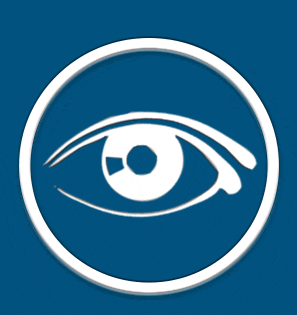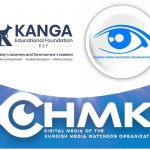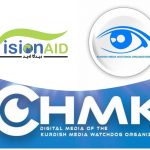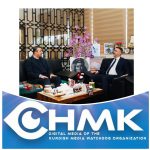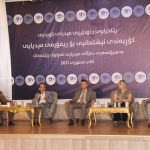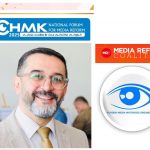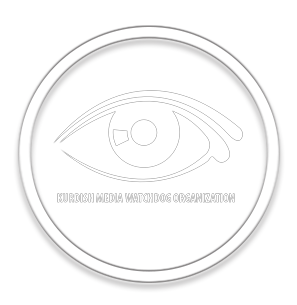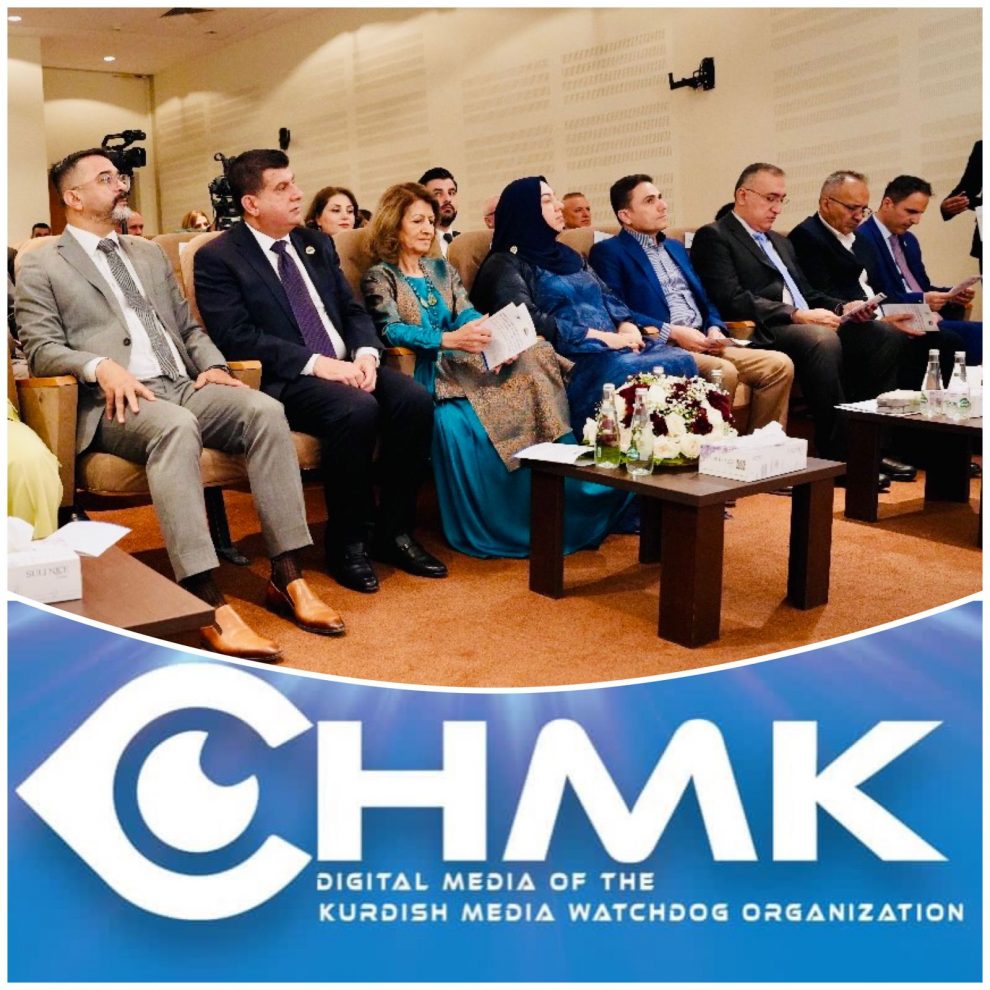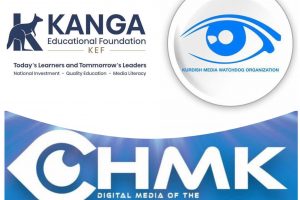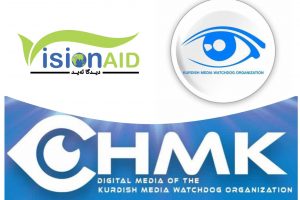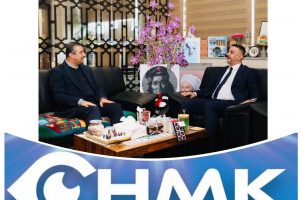Sulaimani, CHMK — On Monday and Tuesday, May 26–27, 2025, the second CHMK National Forum on Media Reform convened at the congress hall of Sulaimani University under the theme “Media Environment and the Need to Organize.”
The forum opened with Iraqi First Lady Shanaz Ibrahim Ahmad inaugurating an exhibition featuring cartoons focused on women’s rights, environmental issues, and children’s welfare.
Prof. Kosar Mohammed, President of Sulaimani University, delivered the conference’s joint statement, highlighting the current challenges faced by the media landscape in the Iraqi Kurdistan Region. He noted that despite the absence of a clear political and media constitution or framework, the region has yet to foster a free and enabling environment for investigative journalism to flourish critically and professionally. Prof. Mohammed emphasized that the intermingling and lack of clear separation between legislative, executive, and judicial powers create an imbalance that prevents the media from fulfilling its role as the “fourth estate,” as defined by international standards. He further affirmed Sulaimani University’s commitment, as an academic and media oversight institution, to support ongoing dialogue and the forum’s agenda, which spans eight key sessions featuring 16 experts from diverse political, professional, and academic backgrounds. These sessions explore topics such as media reform across the branches of government, the intersection of media and education, the tension between media imagination and societal realities, and the balance between censorship and freedom within the media working environment.
During the first session, Associate Professor Dr. Shwan Adam Aivas, President of the Kurdish Media Watchdog Organisation (CHMK.org), presented a comprehensive overview of global media reform initiatives and underscored the urgent need to establish a legal and constitutional framework for media governance in the Kurdistan Region. He advocated for the creation of a National Media Council, diversification of media ownership structures, development of public service media, and adaptation to technological advancements. Dr. Aivas also referenced successful media reform models from the United Kingdom and Australia and outlined the key reform steps applicable to the Kurdistan Region.
Also featured in the first session were Prof. Rewaz Fayeq, Speaker of the Fifth Session of the Kurdistan Parliament, and Dr. Bokan Abubakr, Assistant Professor at Sulaimani University’s College of Law. They discussed the role of the Kurdistan Regional Government (KRG) legislature in advancing media reform, emphasizing the importance of revising existing media regulation laws and enacting new legislation, including laws governing digital media, social networks, and data protection for digital media users.
In the second session, Dr. Bahroz Ali, Media Advisor to the Presidency of the KRG Council of Ministers, highlighted the necessity of designing a clear media system framework that defines its orientation—whether liberal, socialist, or hybrid.
The first day concluded with the distribution of certificates of appreciation to forum participants.
Media Reform and the Judiciary’s Role in the Kurdistan Region
The second day of the CHMK National Forum on Media Reform commenced with a session chaired by Judge Omar Ahmad, President of the Sulaimani Court of Appeal, and Dr. Samaan Fawzi, Professor of Media Law at the University of Human Development. The session focused on the judicial handling of media-related cases, including the designation of two specialized courts in Sulaimani to adjudicate cases involving journalists. A key discussion point was the enforcement of Journalism Law No. 35, which mandates that the Journalists’ Union be notified in advance about the content and details of complaints involving media offenses. In preparation, judges and court staff will undergo training on appropriate procedures for dealing with media plaintiffs and defendants. Additionally, the Journalists’ Union will nominate a panel of legal experts to support the work of these specialized courts.
Academic Institutions and Media Reform
Another session centered on the contribution of academic institutions to media reform. Speakers included Prof. Sherko Jabar, Head of the Media Technical Department at Sulaimani Polytechnic University; Prof. Azad Abdulaziz, Head of the Media Department at Salahaddin University; and Dr. Rawan Subhi, former Head of the Media Technical Department at Duhok Polytechnic University. The panel emphasized the importance of revising media laws and judicial procedures by incorporating the insights of scholars and media researchers in the selection of legal experts.
Challenges Facing Journalists
Veteran journalist Bashdar Baziani delivered a lecture highlighting ongoing challenges for journalists, particularly the difficulty in accessing information and the often-hostile treatment they face from judicial authorities. He argued that the legal system in the Kurdistan Region is increasingly being used to penalize journalists. Baziani also called for improved media literacy and professional development to better equip journalists with knowledge of documentation standards and reporting methodologies.
Media’s Role in Educating Future Generations
The final session of the forum, titled “Media Reform and Its Role in Educating Future Generations”, was led by Prof. Mahieddin Mohammad Khani, Director of the Psychological and Social Counselling Centre at Sulaimani University. The discussion highlighted the shifting relationship between the media and the public, emphasizing that media consumers also bear responsibility for how content is used. It was noted that media platforms often shape public behavior rather than being used constructively by audiences.
Forum Conclusion and Recommendations
The second CHMK National Forum on Media Reform concluded with a presentation by Associate Professor Dr. Shwan Adam Aivas, President of the Kurdish Media Watchdog Organisation, who delivered a set of recommendations formulated over the two-day event. These recommendations were directed to the Kurdistan Parliament, government bodies, judiciary, media institutions, and civil society organizations.
Photographs by: Mohammed Hakim and Rega Ahmad
